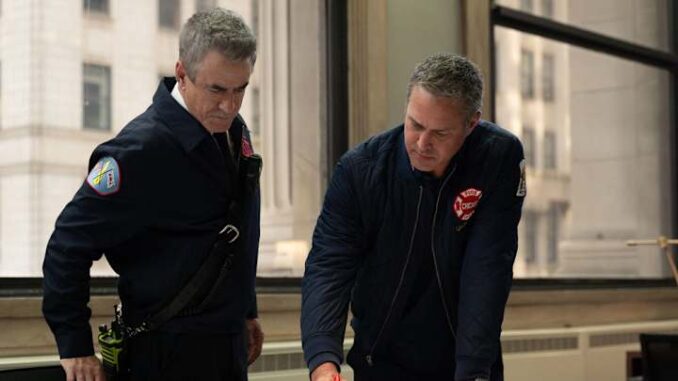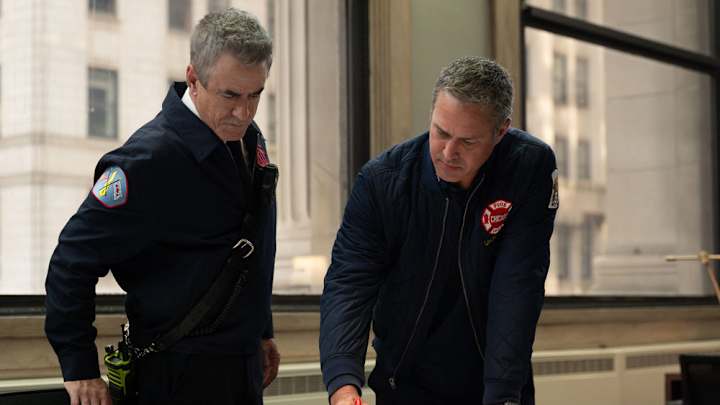
Beneath the rugged exterior and instinctual bravery that defined Kelly Severide for years, a different kind of fire burned: one of relentless curiosity and methodical analysis. For much of its run, Chicago Fire painted Severide as the quintessential hotshot lieutenant, a man of action whose prowess in the inferno was matched only by his charisma. Yet, the official call-up to the Office of Fire Investigation (OFI) in Season 11 wasn’t a sudden left turn, but rather a deliberate culmination, a testament to a character whose true depth had been quietly prepped for a key, indispensable role long before he stepped away from Engine 51.
The groundwork for Severide’s ascension to a specialized investigative position was laid with subtle, almost imperceptible brushstrokes throughout earlier seasons. Unlike his counterparts who excelled in tactical command or medical triage, Severide always possessed an innate fascination with the why behind the flames. He wasn’t content merely to extinguish the inferno; he wanted to understand its genesis, to read the story written in the charred remnants. Early on, we saw glimpses of this: his keen eye for irregularities at fire scenes, his ability to spot accelerants or decipher patterns of burn. These weren’t just plot devices to solve a case; they were character beats, demonstrating a mind uniquely wired for forensic fire science. He approached a collapsed structure not just with a rescue plan, but with a mental reconstruction of its demise.
This inherent aptitude was sharpened by a lineage of mentors and practical experience. From Chief Grissom’s early encouragement to the nuanced insights of seasoned OFI personnel he encountered during joint operations, Severide consistently absorbed knowledge. He would shadow investigators, ask pointed questions, and often prove instrumental in cracking cases from his position at Firehouse 51. Remember the numerous times Severide was the one to uncover the suspicious origin of a blaze, turning what seemed like an accident into an arson investigation? Each successful deduction, each collaboration with external agencies, acted as a quiet training exercise, building his expertise and reputation within the wider Chicago Fire Department. These were not fleeting storylines but bricks in the foundation of his evolving professional identity.
When the offer for a temporary OFI assignment came in Season 11, it was therefore less of a surprise and more of a natural progression. It wasn’t a forced narrative shift, but a recognition of a skillset that had been polished over years. The “big move” was the official acknowledgment that Severide’s value extended beyond the daily calls of Firehouse 51. He wasn’t just another lieutenant; he was the fire investigator, a unique asset capable of bridging the gap between immediate emergency response and the complex, often criminal, world of fire forensics. His expertise allowed the show to explore different facets of the CFD, moving beyond rescue and suppression into the realm of crime-solving and public safety, adding a layer of sophisticated drama.
This key role in OFI fundamentally repositioned Severide within the ensemble. He became an anchor point for a new kind of storytelling, injecting high-stakes detective work into the fabric of Chicago Fire. It highlighted his intellectual prowess, balancing his raw physicality with a sharp, analytical mind. Furthermore, it created crucial character development for those around him: Stella Kidd’s struggle with his absence and the eventual understanding of his calling, the growth of younger firefighters like Gallo stepping into leadership voids, and Boden’s steadfast faith in his subordinate’s unique talents. Severide’s move wasn’t just about him; it was a ripple effect that reshaped dynamics, pushed characters to adapt, and enriched the show’s narrative possibilities.
In essence, Severide’s journey to OFI was a masterclass in subtle character development. His “big move” wasn’t a sudden jump but the inevitable outcome of years of quiet preparation, nurturing an innate talent into a specialized skill set. He transformed from a capable lieutenant into an essential, multi-faceted pillar of the Chicago Fire Department, a man whose quiet insights proved as crucial as his roaring courage. His key role ensured his enduring relevance, not just as a member of Truck 81, but as an indispensable force dedicated to understanding and combating the very nature of fire, proving that sometimes, the most significant evolutions are the ones that have been meticulously building in the background all along.
